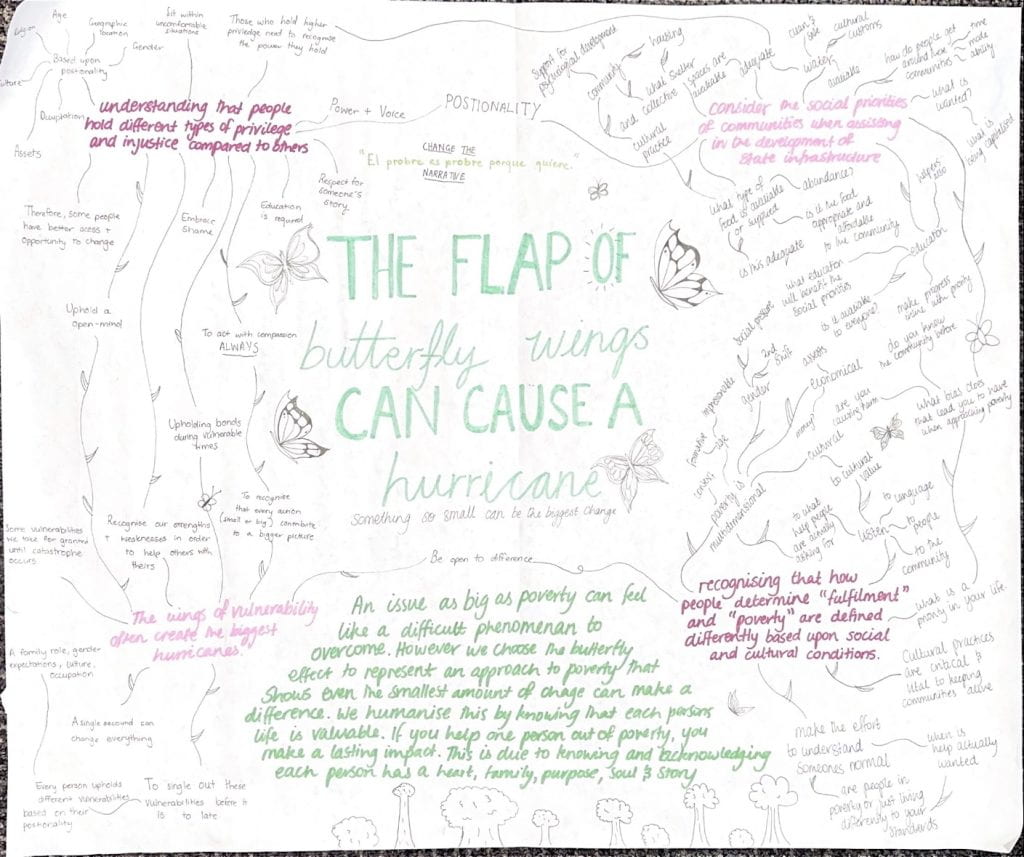As we head into the final weeks here, the schedule is getting very full. On top of uni work and NGO visits, we are taking every opportunity to explore the city as much as possible. This means late-night churro runs or spontaneous flights to Guadalajara, whatever we can do to make the most of our little time here.
Firstly, our topic for uni this week was Poverty and Inequality, two things I have studied quite extensively. I’ll be honest; I didn’t expect to learn anything new. I was very pleasantly proven wrong. The situation of poverty, Inequality and wealth gap in Mexico is dire. More so than in New Zealand, and I don’t say that lightly. When I first heard about the comparison, my mind immediately went back home and the poverty I’d witnessed there. I hoped that no place could be so significantly worse than that. But to see a straightforward comparison, we used the world wealth gap scale. When I entered my earnings, expenses and assets, I came out in the bottom 27% of the income distribution, which is expected as a full-time hospitality worker. What I didn’t expect was where this placed me in Mexico. I was in the top 36% of earners. Top 36%. Continuing this topic, we looked at the difference in minimum wage between the two countries. Mexico has a minimum daily salary, not hourly, which sits at 207 pesos, around NZD 17 a day. While we have a minimum of $21.20 an hour. The poverty and inequality topics in each country are entirely different. While I am not trying to diminish people’s struggles in New Zealand, it is fascinating to consider other countries’ situations.
Maria and I discussed the Butterfly Effect with our lecturer intensively as it relates to these topics. The Butterfly Effect makes reference to the deeply embedded interconnectedness of the world. Meaning one small action, such as the flutter of butterfly wings, has the potential to cause a hurricane. It’s the same as living in poverty, leaving people vulnerable to hunger. Hunger can lead to choices like stealing, which can put people in systems of criminality. This can lead to more significant participation in organised crime. I could go on and on. The important part about the butterfly effect is to remember that all small actions cannot cause anything. Because if you remember this principle, you also have to remember that while that might be the case, one small step can change the world.
We worked a lot with humanising the concepts we were learning. Putting emotion back into the content and, by doing this, recognising that every life matters and deserves to be saved. Through this, my passion towards humanitarian work only intensified. I can picture the butterfly work I’ll be doing. But I can now see where help is not needed and understand the importance of wanting help. Some people are very content living in certain conditions that the ‘developed’ world may see as impoverished. In a clip we watched in class, an indigenous Mexican girl living in what I would consider poor conditions stated that she lived the best life ever. She had a connection to her culture, family, and the world around her. She didn’t need someone to come in and build her a brand new home or give her a basket of food. Sure, those things are lovely, but they’re temporary fixes. From her, I saw the critical relationship between the helper and the helped as a mutually constructive conversation. People have different concerns and needs. Poverty and Inequality, no matter the situation, has to be approached in this situational way.

Another quote I have learnt while being here is, ‘if your solution is simple, it is wrong.’ To build on this content, I incorporated the Butterfly Effect as part of my project. I have been working very hard on outlining my problem and subsequent objectives to take home with me. And incorporating the Butterfly Effect makes this feel possible. I am seeing where I can genuinely include everything I have learned in a meaningful way.
